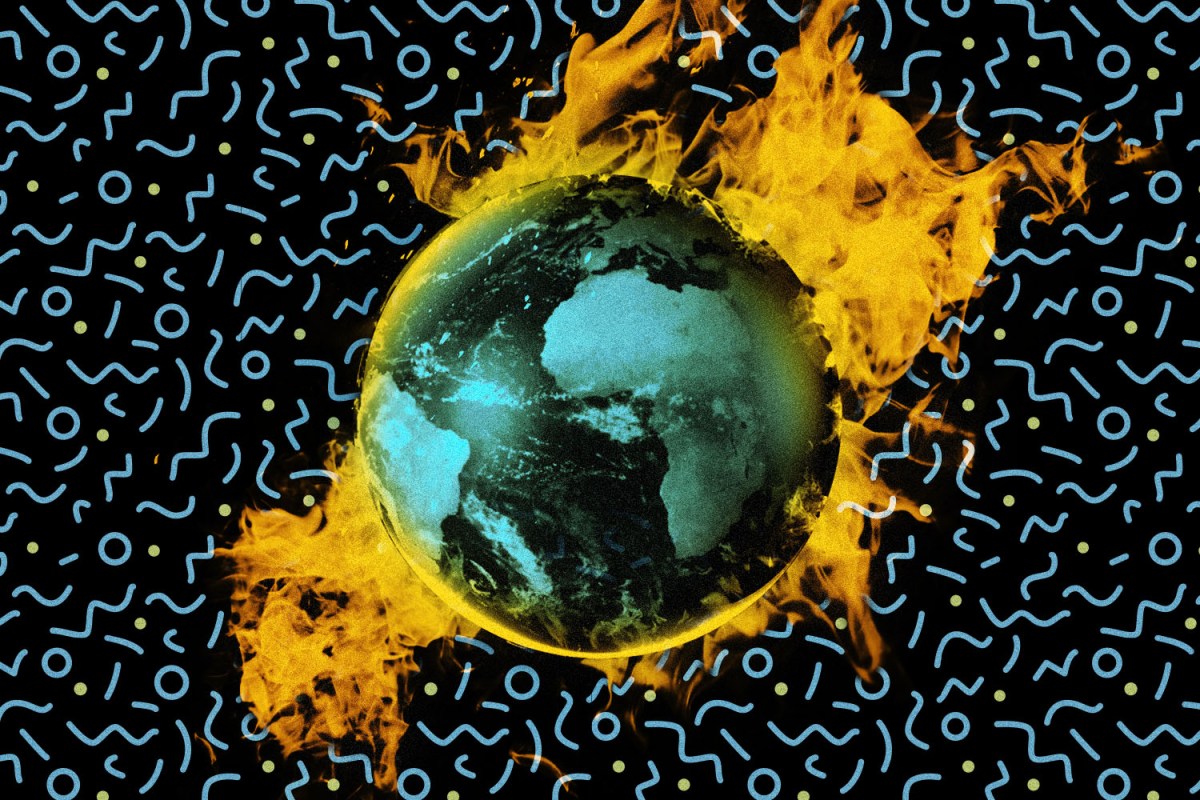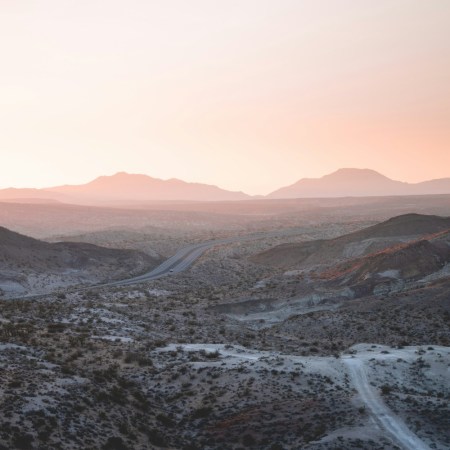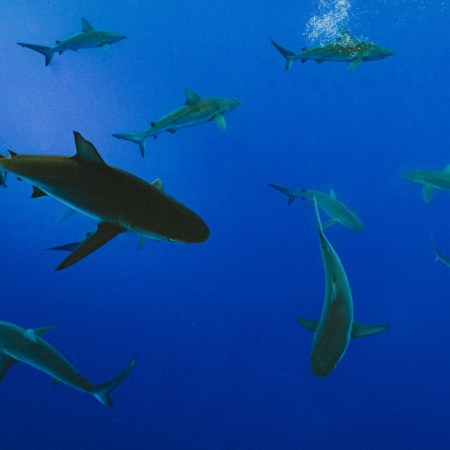
Americans have always adapted their lifestyles in the face of crisis — planting victory gardens during World War I, and the rationing of sugar, gasoline and other basic goods during World War II come to mind. But those periods of less have always been followed by periods of prosperity.
Now, envision a crisis so long, profound and widespread that there could be no possibility of return to normalcy. That is what the global population faces in the climate crisis, where human-caused greenhouse gas emissions are already wreaking havoc on international communities (from coastal Americans to inland Australians), not to mention wider ecosystems, with much worse on the horizon if we don’t make immediate emission reductions.
In trying to find a solution, people get stuck between two extremes: on one end, there’s personal accountability, where living plastic-free, meat-free, car-free and coal-free is praised; on the other, personal choices are seen as distractions from the real problem, that is, as Sofie Karasek of youth-led climate organization Sunrise told InsideHook, the “need to get off of fossil fuels immediately.” But in between the personal and the systemic is something greater, an intersection of individual values and national identity.
The American dream claims to offer — whether realistically or not — the ability for any citizen to move up in the world, regardless of status at birth. That generational growth has always been a mix of social, financial and familial — compared to their parents, children could move from working class to middle class, from an apartment to a single-family home, from having an only child to being able to provide for as many as you’d like.
Millennials, the generation that just surpassed boomers as the largest population group in the country, are the ones currently reckoning with that dream the most, as the first members of Gen Y turn 40 in 2021. But as the crisis of our time closes in on the Millennial generation, the American dream has the potential to change along with the climate.
For the first time in the history of the country, the next generation is not looking for more than their parents, they’re looking for less.
Leaving the climate crisis to millennials
There isn’t simply a resounding scientific consensus that humans have brought about the climate crisis because of our greenhouse gas emissions, we’ve actually come to the point where the CEOs of oil and gas companies are openly telling Time, “Yeah, we knew. Everybody knew. And somehow we all ignored it.”
Nonetheless, we still have a generational divide on the issue that would be hilarious if it weren’t so horrific. According to a Pew Research Center survey from October 2019, the percentage of U.S. adults who think the federal government is doing too little to reduce the effects of climate change, regrettably, decreases with age. We are, unequivocally, from a purely scientific perspective, doing too little, but among baby boomers and older, only 31 percent believe so, and Generation X isn’t much better at 41 percent. But among millennial adults and Gen Zers 18 and above, 52 percent believe the government is doing too little (even young Republicans are more concerned about the climate). And they are the group who will be dealing with the consequences of the inaction of previous generations.
We find ourselves in a place of endless forecasting, but putting numbers on it makes the situation that much more dire for millennials. According to the leading voice on the issue, the United Nations Intergovernmental Panel on Climate Change, human-caused emissions must be cut 45 percent from 2010 levels by 2030, and 100 percent by 2050, to limit global temperature increases to 1.5°C (or about 2.7°F), and thus limit the worst effects to human life.
By 2030, millennials will range in age from 34 to 49, and by 2050, they will be 54 to 69. In other words, the prime of their lives is set in the years when the human race is faced with its greatest challenge yet. And with the average life expectancy in the U.S. around 78.6 years, they’re not only going to be creating solutions while living through global upheaval, they’ll simultaneously be reshaping how Americans conceive of their lives, while previous generations pass on with their spoils.
What does it mean to be successful?
One of the most powerful, and unexpected, voices in the chorus calling for greater global action on climate change is now Larry Fink, the billionaire co-founder and CEO of BlackRock, the world’s largest asset manager (in dollars, we’re talking about $7 trillion). This month, Fink released his annual CEO letter, which stated, “Every government, company, and shareholder must confront climate change.” But one of the more unanticipated lines, in a letter full of extraordinary admissions, was about millennials and Gen Z.
“Young people have been at the forefront of calling on institutions — including BlackRock — to address the new challenges associated with climate change. They are asking more of companies and of governments, in both transparency and in action,” writes Fink. “And as trillions of dollars shift to millennials over the next few decades, as they become CEOs and CIOs, as they become the policymakers and heads of state, they will further reshape the world’s approach to sustainability.”
Many of those young people in question are part of Sunrise, a grassroots movement dedicated to stopping climate change with a focus on passing Green New Deal. When InsideHook spoke with Karasek, the deputy communications director and a millennial, she tackled Fink’s ideas of policy and business, but she also spoke about a larger reconception of success among younger generations, which are particularly opposed to Fink’s concerns about “client portfolios” and “capital allocation.”
When asked about potential changes in the American dream, particularly as it pertains to the greater accumulation of wealth and possessions, Karasek took a moment, then said: “I think that what we’re asking ourselves to envision under a Green New Deal is actually thinking about our shared humanity, and what, as people, brings us joy and meaning. And for a lot of people, that’s our families, friends, and communities, and other people. That’s not a physical commodity.”
Want to quit your day job? Now you can.
That kind of talk — focusing on our shared humanity instead of how we’re going to continue bolstering bull markets — can seem, not to put too fine a point on it, like a lot of hippy nonsense to older generations. But instead of repeating the counterculture of the late ‘60s (looking at you, boomers), millennials are tackling climate change not just from a point of empathy, or eschewing of the over-consumption of the past, but by focusing on, believe it or not, jobs.
But instead of putting the emphasis on moving from blue-collar to white-collar work, or from a high-school diploma to a college degree — central tenants of the American dream — Karasek said that the young people of Sunrise are thinking about the future of work differently.
“Right now there are lots of young people who are going to school and feeling like, ‘Why am I doing this? There’s not a guarantee that things are going to be fine for me and for my kids.’” she said. “[We’re] feeling we’ve been sold this false bill of goods, that if you go to a four-year college, you work hard and you graduate, then everything is fine and you’re going to do well for yourself. But for many, many people in the United States and around the world, that’s just not true. And now it just feels so blatantly obvious that it’s not.”
“Under a Green New Deal, what we’re advocating for is for people to actually have meaningful work,” said Karasek. In practice, that would mean offering training, resources and education for all, but instead of the ultimate goal being a doctor or lawyer, the goal is “doing a job that actually feels impactful to you,” according to Karasek, whether it’s as an architect for energy conserving buildings, a solar-panel installer or a tree planter.
“There are a lot of young people that are taking semesters off from school, or are just not going back to school because it feels like, ‘What could be more valuable to my community than spending my time trying to prevent this oncoming huge calamity from happening?’” she said. “I would say that a huge number of people feel that way.”
Should you bring children into a crisis?
In an opinion piece in The New York Times, climate change experts Gernot Wagner and Constantine Samaras wrote, “Our children and grandchildren — and theirs — will be managing the impacts of climate change for decades and centuries to come.” Millennials in the U.S. are dealing with the “and theirs” portion of that fear, and it’s forcing them to reconsider the prospects of having a family, which has, naturally, been the core of the American story.
The crisis of climate change has led to the creation of many new activist organizations with many different focuses, and procreation has not been left out of the picture. Groups like BirthStrike, Our Children’s Earth Foundation and Conceivable Future, to name a few, have formed to bring public attention to the impact a changing climate will have not just on the youngest among us, but on those who haven’t even been born yet, as well as the reproductive issues that go along with birth and parenting.
“In both our personal experiences, and our developing political analysis, the question of whether or not our world would be safe enough for another generation lay at the very heart of the climate crisis, but people were not discussing it,” wrote Meghan Kallman and Josephine Ferorelli, the millennial founders of Conceivable Future, when reached by email. Through their women-led organization, they hope to put pressure on the U.S. to both end fossil fuel subsidies and support reproductive justice.
Don’t confuse these efforts with the controversial, and often racist, topic of population control. Instead, younger generations are bringing the conversation about child wellbeing and climate change to the forefront without passing judgement no matter what decision people make, whether that’s to have no children or to reproduce freely.
That said, there are a growing number of millennials considering not having children, and don’t count it out as a hysterical reaction to an uncertain future. As Kallman and Ferorelli pointed out, the U.S. border crisis is a reproductive rights crisis, and one that is exacerbated by climate change. And remember the Zika virus scare? They also noted that with an increase in temperature comes a spread in mosquito-borne illnesses like Zika, and while that’s no longer making headlines, it’s part of a whole slate of concerns that are forcing millennials to rethink their family prospects.
“If people are too frightened, ill, poor, insecure in their housing, food or water, to have the family life they want, then we are failing in our efforts. Right now we are failing in our efforts,” wrote the women. “Younger generations are, perforce, feeling the pressure in ways older generations did not, and will have to clean up any messes our parents and grandparents do not. This shouldn’t shape our reproductive lives, but it inevitably will, in complex ways.”
The American dream 2.0?
Maybe millennials won’t judge their success by their storage units. Maybe there will be more single children than Von Trapps. Maybe there will be more manufacturing jobs than pencil pushers. But despite all the alterations currently underway on the American dream, and the fiery climate future causing them, the youngest generation is also the most optimistic.
In another Pew survey from 2018, when asked about the future standard of living for American families, it was the adults 18-29 who were the most optimistic, with 28 percent saying it would get better over the next 30 years, versus only 15 percent of adults 50 to 64 agreeing. (We’d insert an OK boomer joke, but our Gen Z intern said that’s passé.)
To paraphrase one Von Trapp, while the door might be closing on one version of the American dream, a window is opening on another, and it might not be as different as people fear.
“Of course it’s going to change the way that we live, but we believe that it’s entirely possible for people to have abundance in their lives under a Green New Deal,” said Sunrise’s Karasek. “What we’re focusing on is ensuring that there’s no one who has to lose their life or livelihood to a crisis that’s 100% preventable, and that we have to completely transform how our society runs in order to do that.”
A nation that is focused on the common good instead of the profit of the few? Boy, that does sound familiar.
This article appeared in an InsideHook newsletter. Sign up for free to get more on travel, wellness, style, drinking, and culture.

























